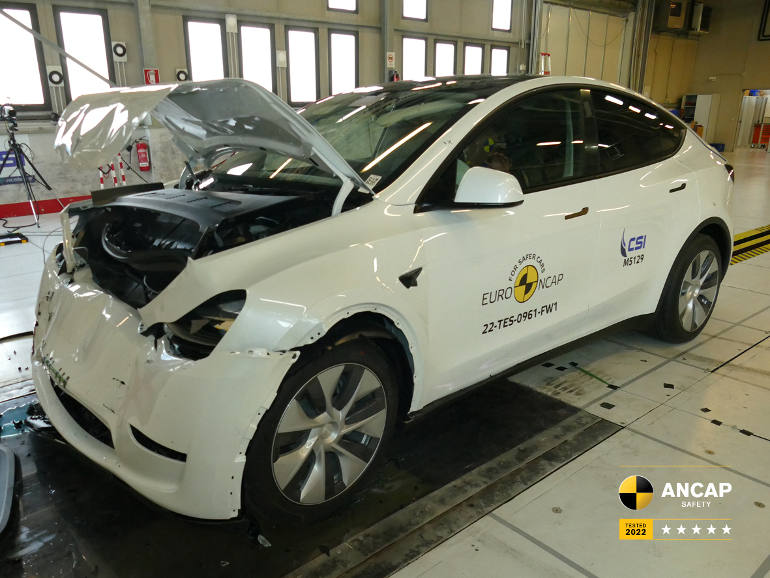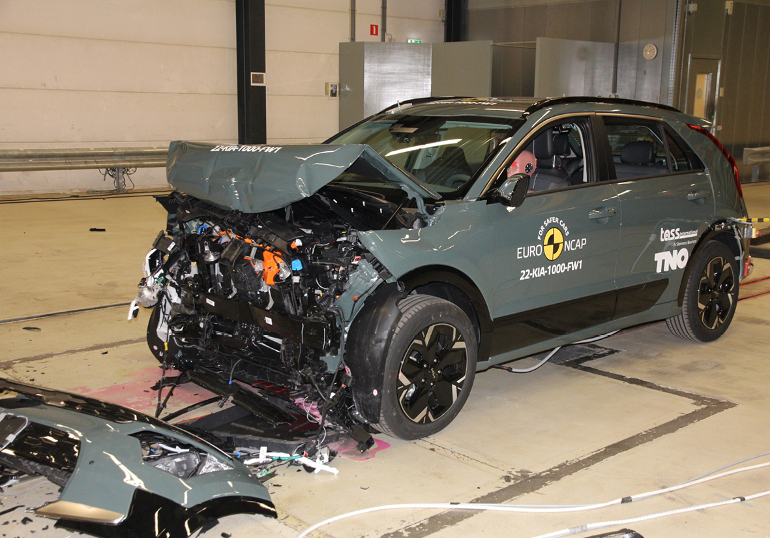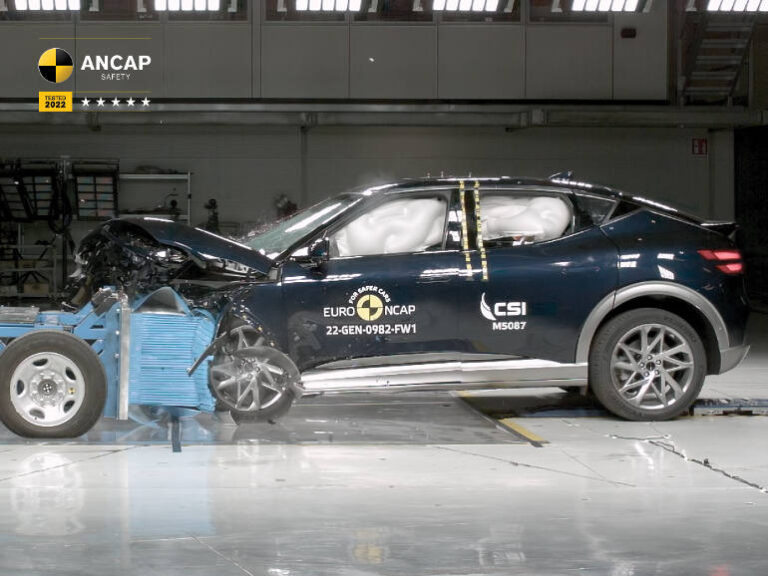The latest crash test results from ANCAP should end the EV fire and battery explosion myth for Fleet Managers that are still unsure about the transition to electric vehicles.
As Australasia’s independent voice on vehicle safety, ANCAP, gave five-star safety ratings to three recently released electric vehicle (EV) models – the Tesla Model Y, Kia Niro and Genesis GV60.
The Tesla Model Y impressed across all four pillars of ANCAP’s assessment, achieving an all-time record score of 98% in the Safety Assist pillar, and the highest Adult Occupant Protection score to date against the latest 2020-2022 rating criteria (97%).
The Tesla Model Y demonstrated high levels of performance for its ability to avoid a crash with another vehicle, pedestrian, or cyclist, and maximum points were awarded across the majority of collision avoidance test scenarios. The Model Y is also fitted as standard with a direct Driver Monitoring System (DMS) which uses on-board camera-based monitoring to detect a distracted driver and automatically enhances the sensitivity of the Forward Collision Warning (FCW) system to be more reactive if distraction or impaired driving characteristics are detected. From 2023, direct DMS functionality will be assessed under ANCAP’s 2023 test and rating criteria – a step forward from the assessment of indirect monitoring systems that form part of the current rating criteria.

Solid scores were recorded in testing of the Genesis GV60, with full points scored for protection of the front-seat passenger in the frontal offset test, the driver in the side impact test and for both child occupants in the frontal and side impact crash scenarios.
While still within the five-star threshold, the GV60’s overall Vulnerable Road User Protection score was however somewhat lower than its segment counterparts at 63%. The front bumper of the GV60 provided Good protection to a struck pedestrians lower legs, however protection of the pelvis was predominantly Poor with just 0.45 points out of a possible 6.00 points scored in this area of testing.
All battery electric (BEV), hybrid and plug-in hybrid (PHEV) variants of the new Kia Niro offer five-star safety performance, with maximum points scored for front row occupants in the side impact and oblique pole tests. Maximum points were also scored in the upper and lower leg impact tests for pedestrians, and for the Niro’s ability to actively avoid or mitigate a crash with another vehicle in intersection turning scenarios.

The design of the front of the Kia Niro was also shown to be a relatively ‘benign’ impact partner – presenting a low risk to occupants of an oncoming struck vehicle in the frontal offset (MPDB) crash test.

“The results we’ve released today will give confidence to those in the market for an alternative-powered Small SUV,” said ANCAP Chief Executive Officer, Carla Hoorweg.
“All three models offer high levels of safety performance across the range of ANCAP assessment areas, demonstrating the clear ability for electric vehicle models to tick both the safe and green checkboxes.”
“Today’s results demonstrate why ANCAP is encouraging all levels of government to ensure subsidies and incentives for alternative-powered vehicles are only provided to models offering the highest levels of safety,” Ms Hoorweg added.
For a full list of alternative-powered models rated by ANCAP visit www.ancap.com.au/safeandgreen.






